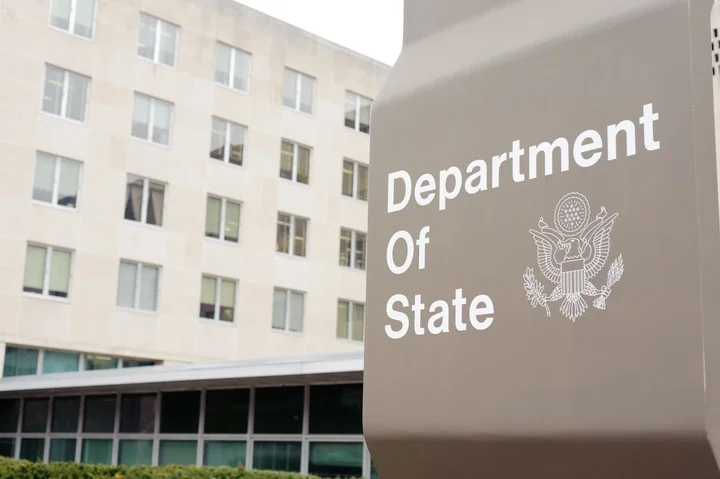How does the Department of State affect me?

The U.S. Department of State, a federal agency, oversees America’s international relations. This includes government initiatives, individual travel, as well as immigration. Its mission is to implement President Obama’s foreign policy. State of Deparment also oversees international activities in other federal departments. It manages the international activities of the Defense Department, Homeland Security and Central Intelligence Agency. It advises the president on all international matters.
What the Department of State Does
The State Department manages relations with 180 of the 191 nations with which the United States has diplomatic relations. It has 270 diplomatic missions, consulates and embassies around the globe. It has over 13,000 employees. Over 9,000 Foreign Service employees work abroad as U.S. ambassadors and emissaries. There are 45,000 workers in the embassies. They represent America’s interests in these countries and help U.S. tourists there.
It negotiates trade agreements and treaties. This includes the Transatlantic Trade and Investment Partnership. It would have been the most significant trade agreement in the world. It is between the United States of America and the European Union. The State Department successfully negotiated the Trans-Pacific Partnership. The Trans-Pacific Partnership was still awaiting ratification when President Trump pulled the United States out of it. All other participants continued to move forward.
Trumps Role in the State of Deparment
Trump requested $40.3 billion for the funding of the State Department in the FY2019 budget. This amount includes $12 billion for overseas contingency operations. These funds will be used to fight terrorism. Because the department’s mandate is to “shape, sustain, and prosper a peaceful, prosperous and just world,” it can be included in defence spending. Department of State collaborates with foreign countries to reduce funding for terrorist organisations. It supports local law enforcement. It eradicates terrorist safe havens.
The State Department provides information to Congress about human rights and religious freedom in nearly 200 countries. The federal government uses these reports to help guide decisions in areas ranging from asylum to assistance. Particular countries are North Korea, Russia, Iran and China.
It also analyses black market activities like human trafficking, narcotics, money laundering and terrorism. An extensive service industry supports these organisations. These include money launderers and providers of false documents. They include accounting, legal, and financial professionals. The State Department helps small countries fight these global organisations.
The State Department offers passports services for citizens who travel and live abroad. It issues visas to foreigners who visit the United States.
Department of State assists U.S. companies operating abroad. It helps them identify potential opportunities. It strives to ensure fair business practices in the United States. This includes protecting intellectual property, bribery and intervening in local corruption to promote entrepreneurship.
Secretary of State
The president’s chief advisor on foreign policy is the secretary of state. The secretary of state oversees the U.S. ambassador abroad. The secretary is the highest-ranking member of the President’s Cabinet. After the vice president and senate majority leader and speaker, the secretary is the fourth in line for presidential succession.
Along with the heads of the Treasury Department, CIA and Department of Defense, the secretary is a member of the National Security Council. Under the supervision of the president, they coordinate intelligence and defence, as well as international relations.
History of the Department of State
James Madison, Secretary of State for Foreign Affairs, proposed a Department of Foreign Affairs created on May 19, 1789. John Jay was the Secretary of Foreign Affairs at that time. Thomas Jefferson was appointed the first Secretary of State by President George Washington on September 29, 1789. Jefferson, previously Foreign Minister to France, began work on March 22, 1790.
Three ways the States Department affects you and the U.S. economy
The State Department impacts three critical aspects of the U.S. Economy. It negotiates trade agreements. They increase export opportunities for U.S. companies by eliminating tariffs. In 2015, exports contributed $2.23 trillion. This is more than 10% of the country’s total output. It creates jobs and boosts economic growth. For example, the North Atlantic Free Trade Agreement increased the growth rate by 0.5 per cent per year. NAFTA, the most significant free trade agreement in the world, has many pros and cons that have a substantial impact on the U.S. economy. This is especially true for U.S. exports and imports.
The State Department also reduces the economic volatility that is associated with terrorism. It encourages financial stability in other countries around the globe. This makes it easier to do business abroad by U.S. businesses.
The State Department is the third to issue passports. It offers assistance to travellers, such as travel tips, briefings on countries, and travel warnings. Register with the U.S. Embassy in the country where you’re visiting. The Embassy will assist you with your departure if there is an emergency. You will need to take part in the Visa Waiver Program Ireland for short-term stays if you are a non-American who wishes to visit the United States.
